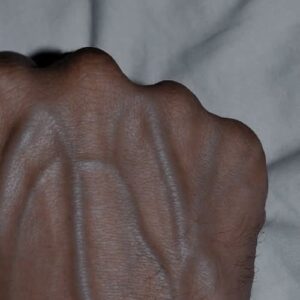The Supreme Court has declined to hear a challenge by civil and voting rights
groups seeking to overturn Pennsylvania’s requirement that mail-in ballots include a handwritten date on the outer envelope.
The groups argued that the mandate is unnecessary and has led to the disqualification
of valid ballots. The justices refused to review a lower court ruling that upheld the
requirement, rejecting the claim that it violated federal law, which prohibits
discarding ballots for paperwork errors that are “not material” to determining a voter’s eligibility.
In 2024, the Philadelphia-based 3rd U.S. Circuit Court of Appeals ruled that while
the date requirement “serves little apparent purpose”—as it is not used to verify
if a ballot was received on time—it remains lawful. The court reasoned that the 1964
Civil Rights Act applies to voter registration rules determining eligibility to vote,
not to how a ballot must be submitted to be counted.
Pennsylvania, a critical swing state in presidential elections, again played a decisive
role last year. Now-President Donald Trump carried the state over Democratic rival and
now-former Vice President Kamala Harris in November, reversing his loss to then-President Joe Biden four years earlier.
The rule in question impacts mail-in voters in Pennsylvania, who are required to place their
completed ballot in a secrecy envelope and then into an outer return envelope. On the
return envelope, voters must sign and date a declaration affirming their eligibility to vote.
Plaintiffs, including the Pennsylvania State Conference of the NAACP, represented by the American Civil Liberties Union, sued state and county election officials in 2022 under the materiality provision of the Civil Rights Act.
That language prohibits denying a person’s vote “because of an error or omission on any record or paper relating to any application, registration, or other act requisite to voting if such error or omission is not material in determining whether such individual is qualified under state law to vote.”
A federal judge initially ruled in favor of the plaintiffs, stating that the date requirement was irrelevant to determining voter qualifications or the timeliness of a ballot. However, the 3rd U.S. Circuit Court of Appeals overturned that decision, leading the plaintiffs to appeal to the Supreme Court.
Reuters noted further that the plaintiffs, in a filing, told the Supreme Court that the “total lack of relevance” of having a date on the outer ballot envelope is undisputed, and yet, as mail-in ballot voting is increasingly used, Pennsylvania’s rule is resulting in “the needless disenfranchisement of thousands of voters each election, especially seniors of all political stripes.”
Attorneys representing the Republican National Committee and the state Republican Party, who intervened to defend the envelope date requirement, urged the Supreme Court to dismiss the appeal. In their filing, they argued that the plaintiffs were challenging voting rules “designed to prevent fraud and protect the integrity of elections.”
A week after the November elections, the Pennsylvania Supreme Court clamped down on what appeared to be an effort by Democrat-run counties to count ballots that justices and state law had previously determined were illegal and, therefore, ineligible to be tallied.
The order came following a declaration by Democratic officials in Bucks County and elsewhere of their intention to count ballots that did not meet the state’s established legal standards amid a tight race between incumbent Democratic Sen. Bob Casey and GOP challenger Dave McCormack, a race in which the AP called for the Republican.
“I think we all know that precedent by a court doesn’t matter anymore in this country,” Democratic Bucks County Commissioner Diane Ellis-Marseglia said at the time, as she voted to count ballots where voters did not submit the two legally required signatures on the outside of the ballot. “People violate laws anytime they want. So, for me, if I violate this law, it’s because I want the court to pay attention. There’s nothing more important than counting votes.”
Eventually, the matter was settled and the counties did not tally ballots deemed to be illegal.





